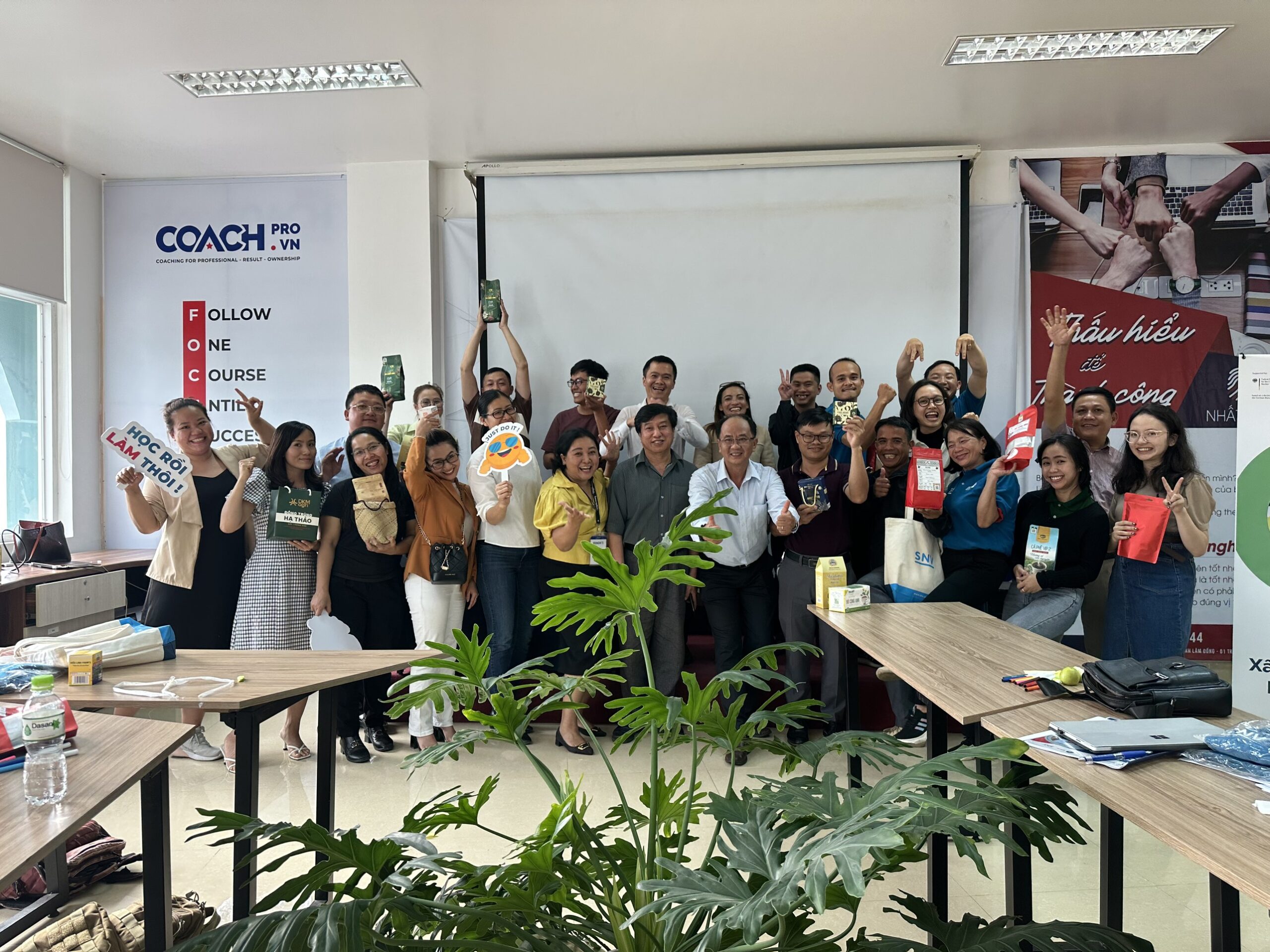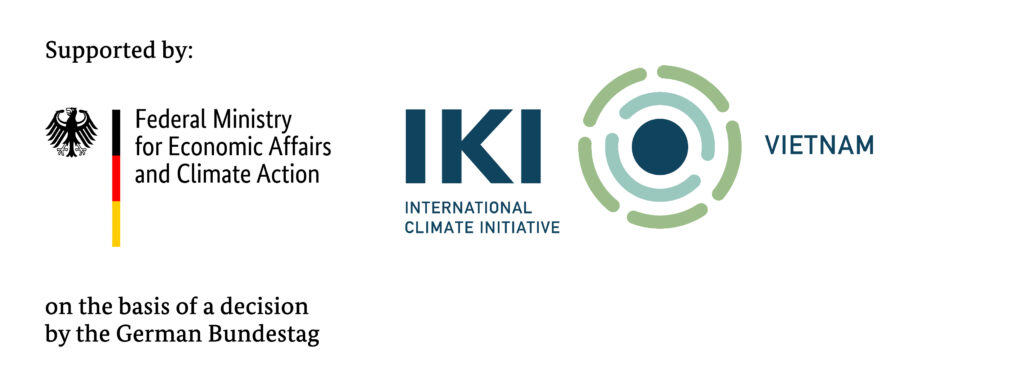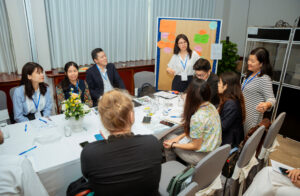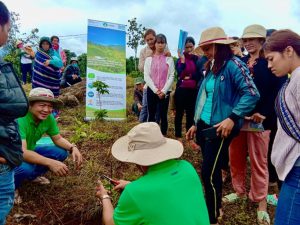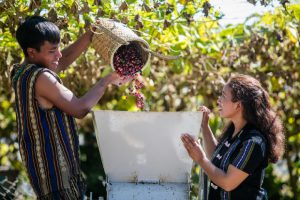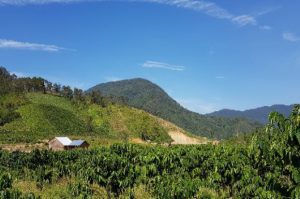If you have never been to Lac Duong, imagine a small district with K’ho people where coffee farms and greenhouse meet pine forests in Viet Nam. During this time of year, Lac Duong is full of energy, and it’s not only because of the coffee or other agro products. It is also because of the Accelerator Fund from IKI-funded Café-REDD project. This fund, launched in 2023, has been bringing positive changes within communities, much like a new year’s celebration. This fund is not only about money; it’s also about finding the balance between socio-economic development and forests conservation.
The Struggle for Sustainable Practices in Small Enterprises
The forests serve as a vital lifeline for the ethnic communities here, although the need for economic survival often overshadows the trees’ cries. With few choices on the table and external forces pressing in, they find themselves caught in a loop of practices that harm what they hold dear: clearing forests for coffee or other crops.
In such scenarios, businesses can play a game-changers.
With the recent establishment of the EUDR, big businesses are leading initiatives to incorporate traceability in their systems. Unlike their larger counterparts, smaller enterprises often struggle with limited resources, both in terms of finances and labours. Integrating sustainable practices requires an initial investment, which can be a substantial burden for businesses operating on tight budgets.
Even though small businesses may find it challenging to adopt sustainable practices, overcoming these obstacles can give them a strong competitive advantage.
These small businesses are often at the frontline where deforestation hits the hardest. Thus, prioritizing sustainability and community welfare is not only ethical as many believe, but also a strategic business move, bringing more stable profits. This adoption can help them mitigate long-term risks tied to environmental degradation and further nourish the community they rely on.
Café-REDD’s Accelerator Fund of €80,000 was launched to address the pressing issue of supporting small agricultural businesses in Lac Duong – who are leading the linkage chains for farmers.
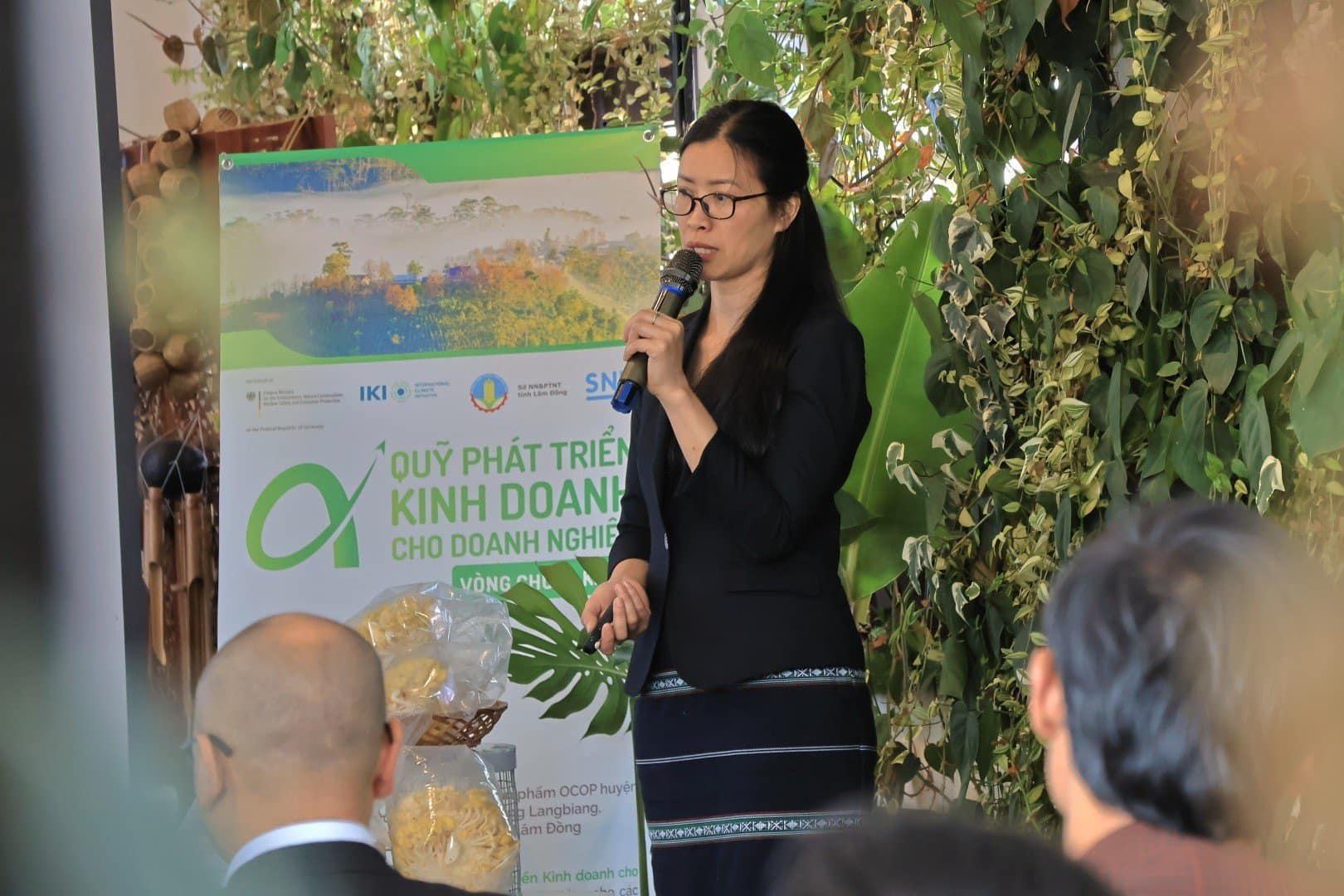
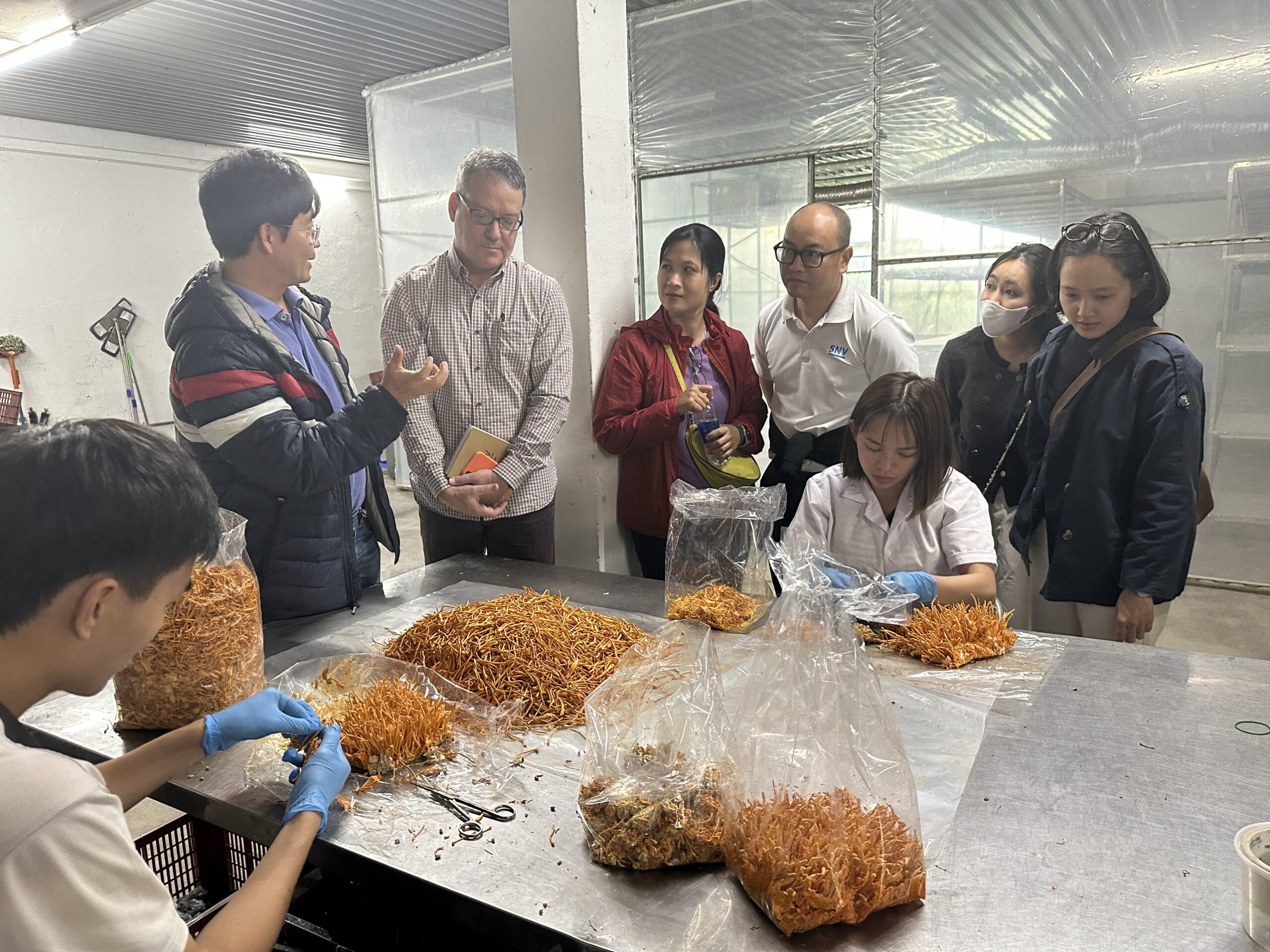
From Mushrooms to Coffee Cherries: Café-REDD’s Impact on Lac Duong’s Small Businesses

Café-REDD proudly supports five outstanding businesses based in Lac Duong through its Accelerator Fund.
- Daisy International is taking the lead by prioritizing sustainable coffee production to create economic opportunities for the K’ho people.
- DaLaVi is dedicated to supporting farmers through the sustainable post-harvest processing of persimmon and macadamia.
- Hoang Thang Da Sar, known for its large farmer involvement in Lac Duong, is choosing a higher quality coffee with selective red cherry-picking techniques.
- Da Lat Mushroom is introducing sustainable mushroom processing, creating more job opportunities for ethnic communities.
- Nguyen Long brings a unique twist to the use of edible and medicinal mushrooms, adding value to traditional items and showcasing the identity of Lac Duong.

“Going sustainable felt like a marathon for small coffee companies like ours at Hoang Thang Da Sar. Limited funds held us back. Now, thanks to the Accelerator Fund, we’re breaking free and making it happen. It’s a bit bumpy, but we’re training farmers the first steps to hand-pick red cherries to shift from unsustainable harvesting technique. We are ready to pay more money for them if they implement these new practices. Even as a small player, we’re proving change is doable with the right support.” – Mr. Long, Hoang Thang Da Sar Company’s owner.
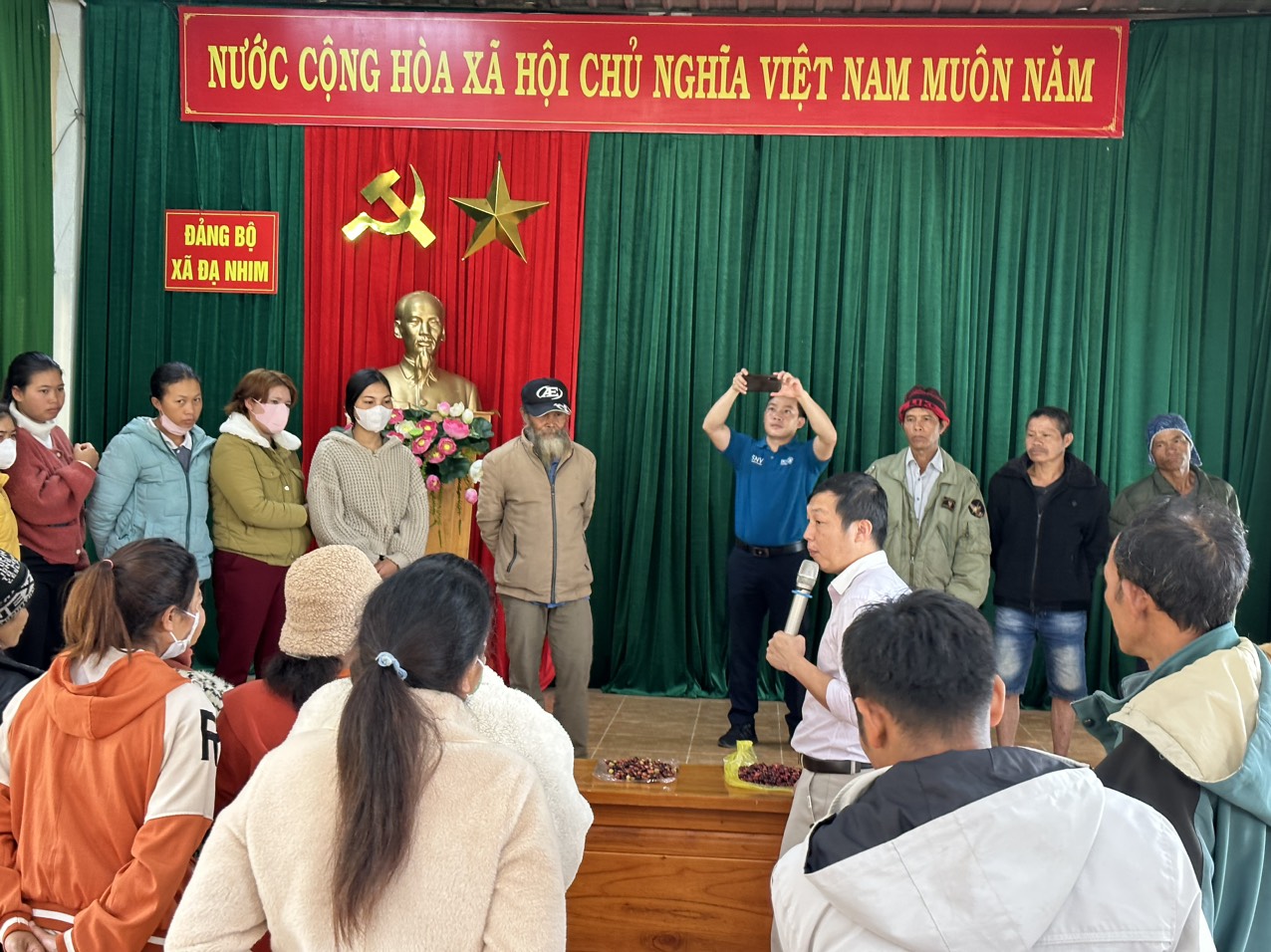
Beyond the fund: Tech, Training, and Transparency
“The Accelerator Fund is not just about money; it’s about creating partnerships between the public, private, and producer sectors, supported by both finance and technology. This collaborative effort within our community is geared towards addressing climate change across the entire landscape, focusing on collective impact rather than individual company actions.” – Mr. Nam Thanh Pham, Café-REDD Project’s Manager.
Indeed, the biggest differentiator of Café-REDD’s Accelerator Fund lies in its commitment to holistic support. It’s not just about providing funds and leaving businesses to themselves.
Along with the fund, these companies have integrated into SNV’s digital monitoring and traceability system, which employs satellite-based mapping data. Understanding the transparency challenges faced by small businesses, SNV has developed a user-friendly system tailored to their needs, especially in rural areas with limited internet access. This inclusive adaptation enhances transparency, aligning with new EUDR regulations, and empowers these companies to lead in sustainable practices, providing a competitive edge against larger corporations. This system benefits coffee and agricultural companies, along with global customers and enables timely interventions by local rangers if forests are threatened.
The Café-REDD project consistently supports small and medium-sized enterprises (SMEs) by facilitating market access initiatives. This includes establishing connections with VietHarvest, an organization dedicated to collecting quality surplus food and redistributing it to underserved communities in Viet Nam. Through this collaboration, SMEs gain access to opportunities for cooperation with other development programs, such as the Japan Connect Initiative and the Australia-Viet Nam Organic Food Trade Forum. Additionally, Café-REDD actively engages SMEs in capacity-building initiatives for participation in the digital economy, specifically through the Scale Up Women-led Digital Business in ASEAN.
These collective efforts highlight Café-REDD’s commitment to empowering businesses not only with financial support but also by providing valuable connections and essential skills for sustained success.
By integrating small businesses into SNV’s digital monitoring and traceability system, Café-REDD not only ensures transparency but also actively promotes sustainable practices among entrepreneurs. This strategic move not only enhances accountability but also opens avenues for private investments, demonstrating a model where economic development is harmonized with environmental stewardship. The successful incorporation of businesses into this technological framework not only underscores the project’s commitment to the IKI Strategy 2030 but also positions it as a catalyst for long-term, private sector-driven impact in climate action and deforestation.
